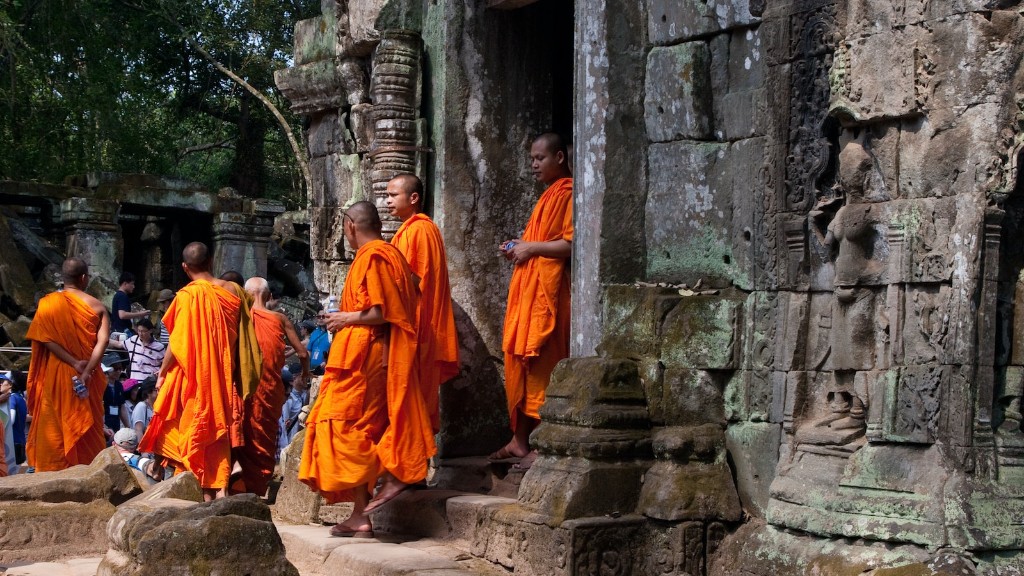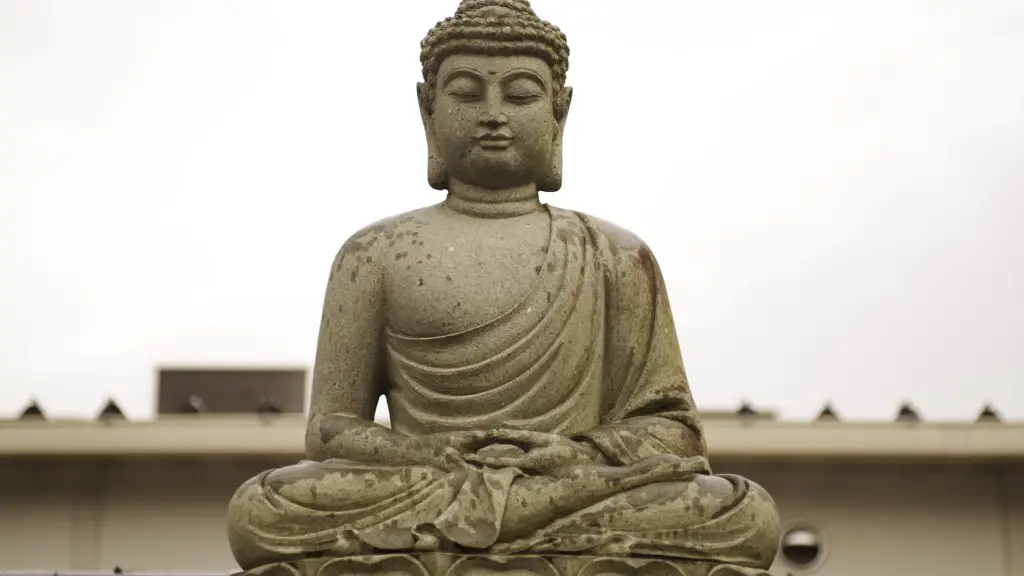Buddhism is a religion and philosophy based on the teachings of Siddhartha Gautama, who is commonly known as the Buddha. According to Buddhist tradition, the Buddha lived and taught in the eastern part of the Indian subcontinent sometime between the 6th and 4th centuries BCE. He is recognized by Buddhists as an awakened or enlightened teacher who shared his insights on reality and the path to liberation from suffering.
The core teachings of Buddhism revolve around the Four Noble Truths and the Eightfold Path. The Four Noble Truths describe the basic condition of human existence, namely that life is suffering. The cause of this suffering is our attachments and desires. The way to end suffering is to let go of our attachments and desires. This is the Eightfold Path, which is a practical guide for living a moral and ethical life.
Buddhism has a vast and rich history, and there are many different schools and traditions within the tradition. However, the core teachings remain the same, and Buddhism continues to be a popular and influential religion throughout the world.
Buddhism is a religion that revolves around the teachings of the Buddha. The Buddha was a spiritual leader who lived in India during the 6th century BCE. He is the founder of the Buddhist religion. Buddhism teaches that the way to achieve Nirvana (a state of perfect peace and happiness) is through the Four Noble Truths and the Eightfold Path.
What are the 3 main beliefs of Buddhism?
Buddhism is a religion that teaches that everything is connected and that everyone has the potential to achieve enlightenment. The main principles of Buddhism are karma, rebirth, and impermanence.
There is no belief in a personal god in Buddhism. Buddhists believe that nothing is fixed or permanent and that change is always possible. The path to Enlightenment is through the practice and development of morality, meditation and wisdom.
What are 5 basic beliefs of Buddhism
The Five Precepts are guidelines for living a moral and ethical life. They are:
1. Refrain from taking life
2. Refrain from taking what is not given
3. Refrain from the misuse of the senses
4. Refrain from wrong speech
5. Refrain from intoxicants that cloud the mind.
These precepts provide a basic framework for living a good life. They encourage us to do things that will benefit others and ourselves, and to avoid things that will cause harm.
The goal of Buddhism is to become enlightened and reach nirvana. Nirvana is believed to be attainable only with the elimination of all greed, hatred, and ignorance within a person. Nirvana signifies the end of the cycle of death and rebirth.
What is Buddhism vs Christianity?
There are inherent and fundamental differences between Buddhism and Christianity. Christianity is at its core monotheistic and relies on a God as a Creator, while Buddhism is generally non-theistic and rejects the notion of a Creator God. This difference is significant because it means that Christianity relies on a divine source for its values, while Buddhism does not. This means that Buddhism is more likely to emphasize personal experience and inner wisdom as sources of truth, while Christianity is more likely to emphasize revelation from God as the ultimate source of truth.
Buddhism teaches that drinking or using other kinds of drugs can cause carelessness and should be avoided. Strong Buddhist beliefs would be expected to have a significant impact on alcohol use.
Do Buddhists believe in heaven?
In Buddhism, there is no concept of punishment or reward and there is no divine being who decides who goes to hell or heaven There is merely the illusory results of our thought, words and deeds, which we call karma. Karma is the law of cause and effect, and it is the principle that our actions have consequences. It is the accumulated karma of our past lives that determines our present situation, and it is our actions in this life that will determine our future lives.
Buddhists celebrate Christmas in their own way, often seeing Jesus as an avatar of being blessed to our beloved Earth.
Do Buddhists believe in afterlife
Buddhist teaching views life and death as a continuum, believing that consciousness (the spirit) continues after death and may be reborn Death can be an opportunity for liberation from the cycle of life, death and rebirth.
The precepts are basic guidelines for living a decent, moral life. They are meant to help us develop our character and mind so that we can progress on the path to enlightenment. The precepts require us to abstain from killing living beings, stealing, sexual misconduct, lying, and intoxication. These are all things that can cause harm to ourselves and others. By following the precepts, we can learn to control our actions and thoughts, and become better people.
What food is forbidden in Buddhism?
Food plays an important role in Buddhist culture and tradition. It is prepared as a spiritual exercise with attention to balance, harmony, and delicacy. Conscious eating is followed among all Buddhists. The Buddha advised monks to avoid eating 10 kinds of meat for self-respect and protection: humans, elephants, horses, dogs, snakes, lions, tigers, boars and hyenas.
There are three main types of evil in the world: physical, verbal, and mental. Killing, stealing, and sexual misconduct are examples of physical evil. Lying, flattery, and defamation are examples of verbal evil. Greed, anger, and foolishness are examples of mental evil.
What is the Buddhist way of life
The daily life of a Buddhist monk is governed by a strict schedule that revolves around meditation, study of scriptures, and participation in religious ceremonies. Monks typically live in monasteries, which are often located near Buddhist shrines, temples, and other sacred sites. In addition to their religious duties, monks often engage in a variety of other activities, such as teaching, farming, and manual labor.
The Noble Truth of Suffering:
The first of the Four Noble Truths propounded by the Buddha is that suffering exists. This suffering has a specific cause, and it has an end. To reach the end of suffering, one must follow the Noble Eightfold Path.
The Noble Truth of the Origin of Suffering:
The second of the Four Noble Truths is that suffering has a specific cause. This cause is our attachment to things that are impermanent. We suffer because we want things to last forever, even though they are destined to change and pass away.
The Noble Truth of Cessation of Suffering:
The third of the Four Noble Truths is that suffering can be ended. Once we let go of our attachment to things that are impermanent, we will no longer suffer.
The Noble Truth of the Way leading to the Cessation of Suffering:
The fourth of the Four Noble Truths is that there is a path leading to the end of suffering. This path is known as the Noble Eightfold Path. It consists of right understanding, right thought, right speech, right action, right livelihood, right effort, right mindfulness, and right concentration.
What is the Buddhist holy book?
The Pali canon is the earliest extensive collection of Buddhist scriptures and the only one that survives in the original language. It consists of three “baskets” of writings: the Vinaya Pitaka, or code of monastic discipline; the Sutta Pitaka, or sermons of the Buddha; and the Abhidhamma Pitaka, or philosophical treatises. The Pali canon was compiled in the 3rd century BCE, probably in Sri Lanka, and was first committed to writing in the 1st century BCE.
Buddhists do not believe in any kind of deity or god, although there are supernatural figures who can help or hinder people on the path towards enlightenment. Instead, Buddhists focus on achieving Nirvana, a state of being that is free from suffering. To reach Nirvana, Buddhists must follow the Noble Eightfold Path, which includes moral behavior, meditation, and wisdom.
Do Buddhists get along with Christians
Christians and Buddhists have very different beliefs about God, creation, and salvation. Christians believe in one God who created the world and offers salvation to those who believe in Him. Buddhists believe in reincarnation, enlightenment, and nirvana. These beliefs are not compatible at all.
Buddhism is a religion that teaches people how to end their suffering. Siddhartha Gautama, also known as the Buddha, founded Buddhism over 2,500 years ago in India. The Buddha taught that the way to end suffering is to let go of desire. This can be achieved by following the Eightfold Path, which includes practicing mindfulness and meditation.
With over 470 million followers, Buddhism is one of the major world religions. Many Buddhists live in Asia, but there are also Buddhist communities all over the world.
Warp Up
There is no one answer to this question as Buddhism is a religion with many different sects and interpretations. In general, however, Buddhism is a religion that teaches that all beings are connected and that suffering is caused by attachment and craving. Buddhists seek to end suffering by following the Eightfold Path, which includes ethics, meditation, and wisdom.
After doing some research on Buddhism, it is a religion that is based on the teachings of Siddhartha Gautama. He was born in what is now Nepal around the year 563 BCE, and after spending time as a Hindu ascetic, he decided to sit under a tree and meditate. After 49 days of meditation, he attained nirvana, which is a state of perfect peace and freedom from suffering. Buddhism is a religion that teaches its followers to live a life of compassion and loving-kindness. It is a religion that emphasizes the importance of meditation and mindfulness.


